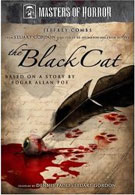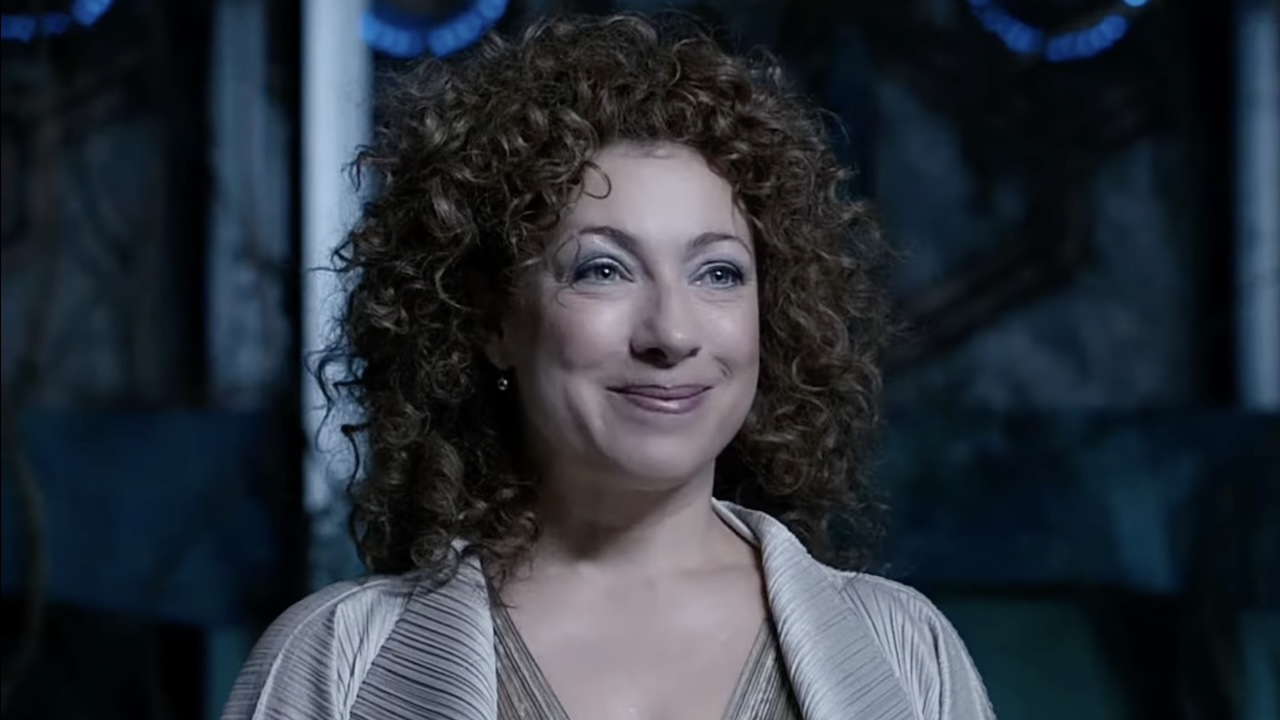Master of Horror Stuart Gordon returns with his second installment of Showtime’s so-so anthology horror series. His contribution last season, an adaptation of H.P. Lovecraft’s Dreams in the Witch House was one of the best of that somewhat lackluster group. This time he switches his master of horror from Lovecraft to Edgar Allan Poe whose 1843 short story, “The Black Cat” serves as the basis for the episode. The difficulty in adapting Poe's stories to the screen has often been due to their abstract nature. Reading more like recollected nightmares than standard beat for beat narratives, Poe‘s work operates as a kind of literary rorschach. Readers fill in the blanks with their own imaginations. This abstraction is what keeps Poe relevant today with his repeated use of the “unreliable narrator” that creates a tension as to whether the story is true or merely the ravings of a madman. But the abstraction also applies to the characterizations, of which there is almost none. Failed adaptations either create characters that do not fit the mold of the Poe story or are not sufficient enough to make an impression on screen. Here, Gordon and his long time co-screenwriter Dennis Paoli make a very effective decision to tell the story of “The Black Cat” through the troubled life of the author himself, mixing fact and fiction like a horror movie version of Shakespeare in Love.
In fact, what is told is very much a love story. None other than the great Jeffrey Combs, Dr. Herbert West himself, plays Poe, who once wrote, “Perversity is the human thirst for self torture.” As depicted here, Poe is indeed a tortured man. When we meet him, he’s living in Philadelphia and at an all time low. He's struggling with a drinking problem, suffering from writer's block, and having difficulty caring for his consumptive cousin and wife, Virginia (Elyse Levesque) to whom he is devoted. Desperate to be respected as a poet rather than merely a fear merchant, Poe has fallen on hard times. His poems sell for a mere 25 cents a piece and his publisher only wants more of the spooky stuff. Because he loves her so much he refuses to allow Virginia to sell her precious piano to make ends meet. Things get even worse when Virginia begins to cough up voluminous amounts of blood. The doctor flatly refuses to treat her without being paid in advance and this sends the destitute Poe over the edge, deeper into drink, self-loathing and hallucinatory paranoia.
While he fails to live up to his promise to Virginia to quit drinking, Poe also finds that he cannot write. He is distracted by Virginia’s beloved black cat, Pluto, who has his eye set on the Poes' other pets, a goldfish and a canary. Waking from a drunken stupor, Poe finds the canary dying in a pool of blood on the floor and a fishbowl minus one goldfish. Poe takes out his frustrations on the cat, first cutting out its eye, then throwing it out of the house completely. But it always comes back. Even after he hangs it with a noose and then lets it burn to death in a fire.
If Stuart Gordon’s years as founder and artistic director of the Organic Theater Company in Chicago taught him anything it’s that characterization and storytelling are the best special effects around. His best work, including his recent non-horror David Mamet adaptation Edmund, is driven by strong characters and the kind of horror that is truly dreadful and arises out of the context of the story. In The Black Cat we are horrified and saddened by Poe’s behavior and the consequences of his actions on who he loves most, Virginia. Poe is so guilt ridden he cannot even understand how the girl could ever have loved him, a man who cannot help her when she is sick and cannot even clothe her properly. Gordon and his brilliant longtime screenwriter Dennis Paoli stack the deck against Poe so heavily we almost wish for his short life to end sooner so he can finally have some peace.
The emphasis on character does not mean the film doesn’t deliver the goods. The Black Cat has all of the requisite gore that Gordon has become known for since The Re-Animator but here it’s really not funny at all, and in one specific scene it is at once creepy, shocking, and traumatic and the very bottom of the deep, dark well that Poe damns himself to inhabit.
Production Designer Don Macauley does an amazing job in creating this private hell on a very tight budget. He creates a period Philadelphia right out of Poe’s subjective mind, a gaslit city full of brick streets and dark alleys haunted by long shadows. Director of Photography Jon Joffin captures this in a near black and white shading onto which specific colors are allowed to dominate, particularly the vibrant red of blood. This shading pays off thematically as well when Poe refers to his wife’s illness as , “The White Plague” and then again later when he seems to be referring to his writer’s block while staring at the vast, bright white of the empty paper. This is technically the best looking production of the series.
Above all else, however, this is really Jeffrey Combs’ show all the way. The veteran character actor sinks himself deep into the role and with the help of some fantastic prosthetic make-up by KNB studios becomes the spitting image of Poe the way we remember him from old photographs. But the make-up is nothing compared to the way in which Combs changes his voice, inflection, accent and physical movements to create a grand, theatrical character of the tragic writer. His Poe is an orator, a larger than life storyteller for whom nothing is less than dramatic. A few minutes into the episode you lose all thoughts about Herbert West or Combs the actor and feel as though you are spending time with the great writer himself. No greater compliment can be paid to an actor than to say that he showed us the humble nature of a human being. Combs deserves the full measure of this compliment.
Your Daily Blend of Entertainment News
The Masters of Horror series has been a disappointment for the most part. The episodes seem more often than not to be padded short stories or, in some cases, undernourished feature films. The Black Cat gets it just right, using the one hour length to its advantage by tightening the pace like a vice around its protagonist’s head. This is another great and affordably priced disc from Anchor Bay, now going by the name of its parent company, Starz Home Entertainment. Anchor Bay has made a name for itself by releasing great foreign, independent and cult genre films to DVD with a surprising number of strong extras for titles often considered, “minor” and a commitment to putting out the best quality print possible. So it’s no surprise that the transfer itself is clean with very strong blacks which is vital for this production with it’s desaturated color scheme and use of dark shadows.
The “making of” featurettes are both far superior to the usual and allow the viewer a real look at how the production was actually accomplished instead of the usual talking head promo fluff. This is all very spoilerific, so make sure you watch them after you’ve seen the movie. A warning is placed onscreen before each segment and for good reason. Almost all of the events of the episode are talked about and most of the effects are revealed in great detail including a computer effect I was certain was done with a prosthetic head.
The excellent screenplay is available as a PDF file, but, as always with Stuart Gordon’s films, the best extra is the director’s commentary. This time Gordon is joined by star Jeffrey Combs and the two old friends share a wonderful conversation about the life of Edgar Allan Poe and their personal attachment to his work. They reveal that nothing is presented in the film that did not either come directly from Poe’s actual life or from one of his stories. This makes the film an amazing accomplishment that works both as an effective literary adaptation as well as a historical docudrama. But, most importantly, it’s enlightening and entertaining.

